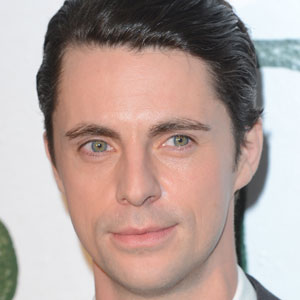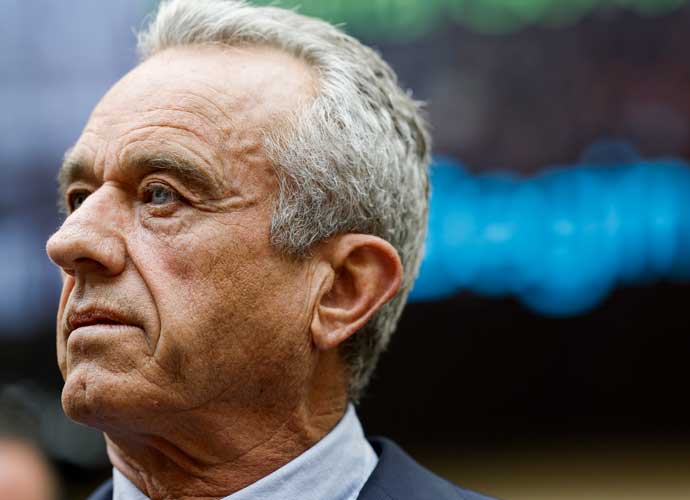Matthew Goode Interview On 'Stoker,' Nicole Kidman, Mia Wasikowska
Matthew Goode stars as the enigmatic Uncle Charlie in the Gothic thriller, Stoker. Working alongside Australian actresses Nicole Kidman and Mia Wasikowska, Goode had the key role in a multicultural team of actors in the latest film by Korean director Park Chan-Wook. “I think these days whenever you’re on set, it’s always multicultural,” Goode told Uinterview in an exclusive interview. “It’s quite rare to not have an English or Australian invasion on set in Hollywood. It’s nothing surprising, nothing you have to think about anymore, you just get on and work."
Born and raised in Devon, England, Goode is perhaps best known for his role as Adrian Veidt in Watchmen. He also played the love interest of Amy Adams in the comedy Leap Year and opposite Colin Firth in Tom Ford's A Single Man.
But his star turn in Stoker may be his biggest role yet. The challenge was made easier by his personal chemistry with Kidman. "She’s really funny," Goode told Uinterview. "People may think that she is quite cold because of the character she plays, but she’s so warm. She’s really intelligent, she’s super professional."
Well, he understands more than he can speak. It was quite seamless, really. My initial contact with director Park was having a Skype conversation, he came talking about the project. And we were online for about an hour chatting. Obviously he talks, and then the translator translates, and it goes back and forth. It’s quite soothing listening to him. When were on set, I found it so soothing listening to him. It was very peaceful. But it went really well. We didn’t think about it. There were some days when things took some time, but it wasn’t irritating, nothing got lost in translation. I loved it.
Oh my God, yes! The attention to detail was crazy. I’ve never seen so much thought going on in such detail. That is disconcerting in some ways in the beginning, you start thinking, 'Well, how much room for maneuver do I have with my character?' But he’s so collaborative, his ideas are fresh. He’ll try to implement them and stuff gets into the film. And you’re like, 'That’s us working together, and that’s kind of nice because he’s a world class director, and you’ve taped something together. It’s crazy!' It is a lovely feeling.
In some ways, you give up much more than if it was a Hitchcock film, in which the great reveal would be right at the end. So you have license, but at the same time, you don’t want to ham it up too much. I think in many ways it’s very underplayed, a lot of this stuff between us. The dialogue that we have is sometimes heightened in some way. It’s not naturalistic, it’s not how you normally speak, but it’s very pointed. It’s very detailed about what he wants to say, and that lends itself a lot to having an Eastern director. It feels quite operatic, and it fits into the idea that this is not a natural piece. It’s sort of like a fairytale. It’s like a gothic fairytale, like a dreamlike thing.
Yeah, it’s very difficult to say that I could relate to him. But you've got to try to find that. You can’t just say, 'I’m gonna be evil!' I mean as much as you sometimes get lost in the scene, lost in your imagination, you’re listening and you’re responding to differences and the performances that you get in each take, there is that. You want to basically research your character, research him like a suit you know. Each time you get back into rehearsal, it’s like trying on suits, 'Oh we’re going to try this suit on, now we’ll measure this bit, see if it fits.' Eventually, you've got this complete thing going on, which you then have to throw away, and not think about, particularly because you jump around so much, and you have to kind of know where you are in the story. I just thoroughly enjoyed working with every single one of those Australians.
I always say, 'I thank God I’m playing another American, but I’m taking a job from an American, so you better do it bloody well!' It makes you work hard, it makes you work really hard, and there wasn’t a lot of time to muck about. We had a little fun making the film. In some ways, I always thought, Nicole has a slight Australian accent, Mia has a slight Australian accent, but there’s a bit of American in there too; I think a couple of drinks and it might become a bit stronger. I think these days whenever you’re on set, it’s always multicultural, and so multi-country, and it’s quite rare to not have an English or Australian invasion on set in Hollywood. It’s nothing surprising, nothing you have to think about anymore, you just get on and work.
She’s really funny. People may think that she is quite cold because of the character she plays, but she’s so warm. She’s really intelligent, she’s super professional, very funny. I really enjoyed her, she’s so generous with her time. It’s inspiring watching her balance being a world class leading actress and being a mum. I think we were very lucky to see her in her hometown [Nashville]. They are so relaxed, and the way that she’s treated by the public. It is quite a safe place for her, and I think we saw her at her most comfortable. But she’s just a wonderful lady, and bloody good. And then Mia [Wasikowska], I just adored. She’s become like my littler sister, she’s a bloody good actress. It’s inspiring when you work with people at the top of their game. Jackie [Weaver] also, I had so much fun working with her. The phone booth scene was one of the funniest scenes filming.
We did a playback, and I asked Jackie if I could only go a bit stronger. And Jackie was like, “Yeah, you just strangled the hell out of me!” We got a really good laugh, but it was kind of psychotic, because what you’re doing is actually quite disturbing.
There is a question of whether there's predisposition in the family bloodline to commit these acts. One of the reasons that Charlie wants to come back, he waits respectfully in some ways, till she’s 18 years old, is that he’s heard that she has something similar. There’s something similar between them, from [the housekeeper] Ms. McGarrick. That’s why her father takes her hunting, to stop her from doing something worse, because he recognizes something in her that’s like Uncle Charlie. This is why he takes her hunting, to kill things, to try to exercise that side of her nature, which she can’t know about herself but he recognizes.
Dancing on the Edge is coming to America really soon, in June, on the Encore Channel. It’s a drama set in the 1930s in London concentrating on a black jazz band. And I am going to do a pilot called The Vatican, which I am directing and producing and that’s really exciting. And there’s a possibility of working with [Danish director] Thomas Vinterberg, which is actually nowhere near reality, but I met him and I love him.
RELATED ARTICLES
Get the most-revealing celebrity conversations with the uInterview podcast!








Leave a comment